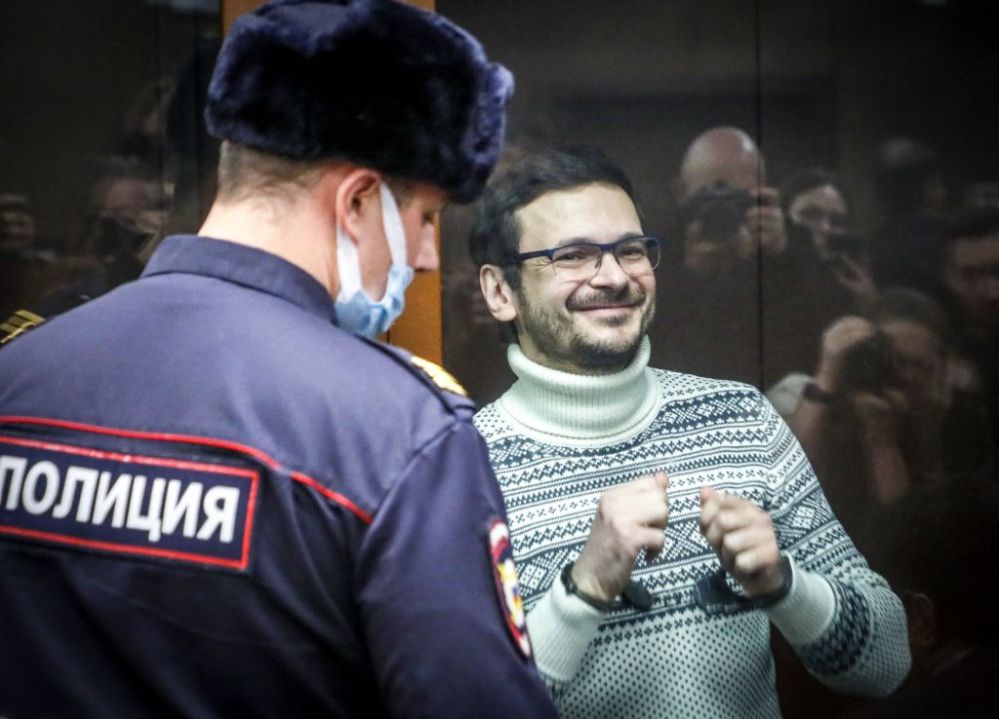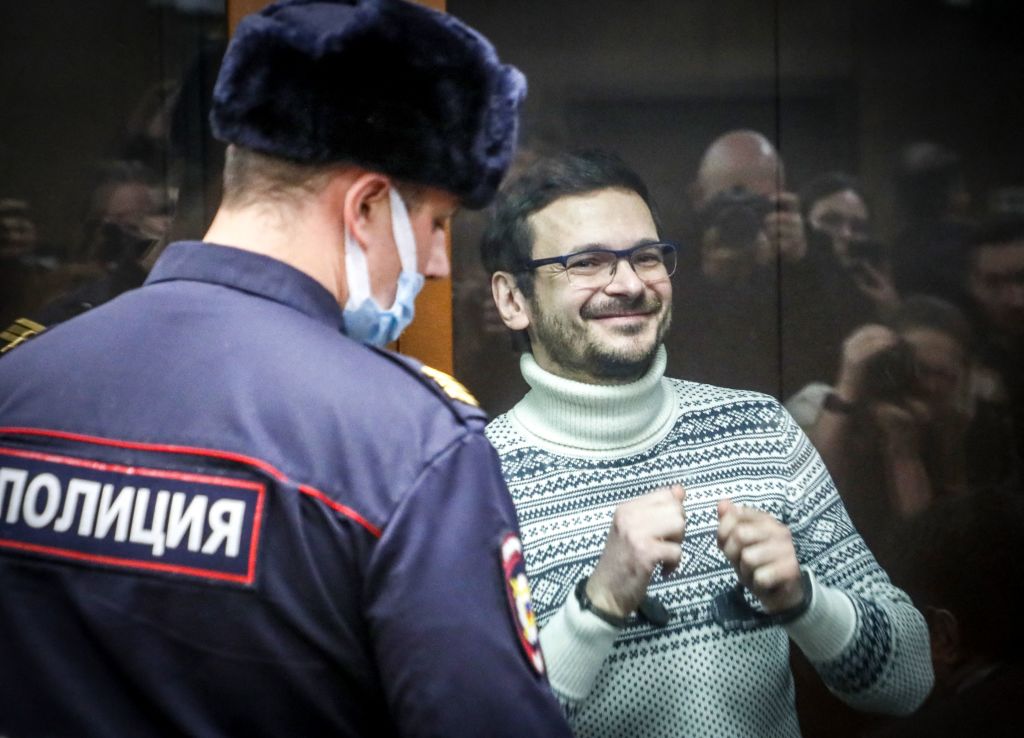Fewer than one in 100 defendants in the Russian court system get acquitted. Even in the best of circumstances then, Ilya Yashin’s chances looked poor. As the last of Russia’s high-profile opposition politicians who remains alive and isn’t in prison or in exile, there never was any question as to whether he was going to be convicted.
Today, he was predictably found guilty in Moscow’s Meshchansky District Court under Article 207.3 of the Criminal Code, on the deeply-questionable charge of ‘spreading false information about the Russian military’. His crime was to raise the allegations of systematic human rights abuses in the Ukrainian town of Bucha on his YouTube channel in April. Prosecutors are demanding a nine-year prison sentence (as of writing, the actual term has not been announced). So far, so predictable. Yet two aspects of the case are noteworthy.
After urging Putin to ‘stop this madness immediately,’ Yashin then sought to hearten his supporters
The first was the extent to which, while the verdict was a given, the actual trial was surprisingly balanced. Yashin’s defence was able to call a range of personal and professional witnesses, even if the cheeky bid to summon Lt. Gen. Igor Konashenkov, the defence ministry’s official spokesman, came to naught. Russia is still the land of ‘telephone justice,’ whereby judges in politically-significant cases are told what verdict to give, but it was a reminder that there is still, however much buried under authoritarianism and drowned in corruption, a culture of legalism there, too.
Indeed, Yashin himself, in a powerful closing address to the court, drew attention to this, praising judge Olga Goryunova:
‘You have conducted it publicly, before the press and an audience, without interfering when I wanted to speak or getting in the way of my defence. It might all seem mundane: this is how a court should work in any normal country. But in the burnt field of Russian justice, this process stands out as something that seems alive.‘
It may have been in part mischievous, but there was also a recognition of the degree to which, in Vladimir Putin’s increasingly-totalitarian state, everyone is a victim, when Yashin said to the judge:
‘For the government, you’re a mere cog in the machine designed to do what it’s told… I am sure that you and I are bothered by the same problems. I’m sure that you are just as shaken by this war as I am, and that you pray for this nightmare to end as soon as possible.’
What also came across most strikingly how far Yashin, like so many others in the younger generation of Russian opposition leaders (most notably the poisoned and then imprisoned Alexei Navalny), remains cheerful, even optimistic, in the face of the state’s power and malice.
After all, one could suggest he has little reason to be. The 39-year-old has been a political activist since university, heading the youth wing of the liberal Yabloko party (until it expelled him for being too radical), being at the heart of the anti-Putin protests in 2011-13, and successfully campaigning for a seat on his local council. The last of these may sound like a minor accolade to Western ears but was an impressive achievement in modern Russia. He even tangled with Ramzan Kadyrov, the wilful tyrant of Chechnya, despite the grisly fate which has met so many who did so.
With Navalny in prison since 2021 and his movement in Russia scattered, Yashin was the most visible and outspoken liberal opposition figure left free in the country. His YouTube channel showcasing his passionate and caustic commentary had 1.3 million subscribers, and so his fate was perhaps inevitable.
Despite warning shots such as a charge for ‘refusing to obey the police’ – for which he received a 15-day sentence – he neither moderated his message nor fled the country. His closing statement in this trial was a declaration not just of defiance but also optimism.
Affirming that ‘it’s better to spend ten years behind bars as an honest man than to burn silently in shame for the blood being shed by your government,’ he addressed Putin directly:
‘Mr. Putin! As you look at the consequences of this monstrous war, you probably realise what a big mistake you made on 24 February. No one is greeting our army with flowers. We are called invaders and occupiers. Your name is now firmly associated with death and destruction. You have brought terrible misfortune to the Ukrainian people, who will probably never forgive us. But you’re not only at war with the Ukrainians. You’re at war with your own people…You are taking away the Russian people’s home. Hundreds of thousands of Russians are leaving their homeland because they don’t want to kill or be killed. Those people are running from you, Mr. president. Haven’t you noticed that?’
After urging Putin to ‘stop this madness immediately,’ Yashin then sought to hearten his supporters:
‘Please don’t give in to despair, and don’t forget that this is our country. It’s worth fighting for. Be courageous, don’t give in to this evil, and resist. Defend your neighbourhood. Defend your city. And above all, defend one another! There are many more of us than it seems, and together we are a great force.’
Most importantly, he added:
‘Please promise me that you will keep your optimism and don’t forget how to smile. Because the moment we lose our ability to enjoy life will be the moment they win. Believe me: Russia will be happy and free.’
Apart from an inspiring affirmation of his cause, Yashin has indeed identified a key truth. Even more than fear, apathy and hopelessness are a dictator’s best friends, sapping any will to resist. If there is a silver lining to be found, it is in the degree to which the new generation of Russian dissidents have, despite everything, managed to hold on to that optimism.








Comments